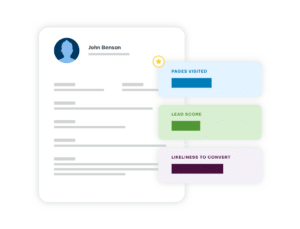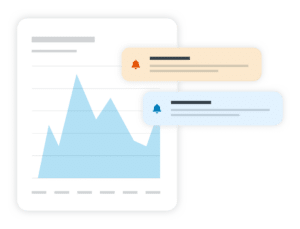Mastering Sales ROI in Manufacturing: Strategic Lead and Opportunity Management
Welcome to the first part of our four-part series, Mastering Sales ROI in Manufacturing: A SugarCRM Guide. In this first post, we will be covering the importance of Strategic Lead and Opportunity Management.
For manufacturers, lead nurturing is an important part of maintaining a sales pipeline because it helps you nudge your leads closer to taking the next step toward becoming a customer. Without it, your valuable leads could slip through the cracks. In fact, a recent SugarCRM research report uncovered that 41% of sales, marketing, service, and IT leaders believe that intent data and lead scoring are the most important CRM-based activities for organizations.
But attracting leads to your manufacturing sales pipeline is not a one-and-done deal. It takes regular marketing and sales touchpoints to move leads through each stage of your sales pipeline and get them to convert.
Crafting a Winning Blueprint with Lead Management
Manufacturers deal with complex B2B sales cycles involving intricate negotiations, customization requirements, and long-term relationships. A robust lead management system enables manufacturers to streamline their sales funnel, from initial prospecting to closing deals, by categorizing and prioritizing leads based on their potential for conversion. This not only saves valuable time and resources but also ensures that sales teams can focus their efforts on leads that are most likely to result in successful partnerships, contributing to a more efficient and profitable operation.
At the end of the day, manufacturers need to have a strong growth strategy that has a threefold approach:
- Acquire new customers
- Maintain relationships with existing ones
- Nurture future business
This is what makes lead generation, sales, and marketing crucial components of a manufacturing company’s growth plan. Below are three ways manufacturers can use strategic lead and opportunity management tactics, as well as technology, to build a reliable and resilient sales pipeline.
1. Pay Attention to Lead Scoring
When you’ve got an abundance of leads, the knee-jerk reaction might be to chase them all. But let’s pause and consider: Do all leads merit the same investment of time and resources?
Lead scoring is a helpful method for managing leads coming in through your manufacturing sales pipeline. Essentially, lead scoring is when businesses assign numerical values to accounts based on how likely they are to convert.
Rather than spending valuable time and effort trying to convert a lead that’s not likely to convert, lead scoring allows businesses to prioritize the most important leads by identifying those that are more valuable. In other words, you’re putting your efforts toward leads that are interested in your products.
Through lead scoring algorithms, intelligent CRM platforms, like Sugar, can place a spotlight on prospects that are most likely to convert, ensuring your sales team’s efforts aren’t spread thin.
 2. Mastering Opportunity Management
2. Mastering Opportunity Management
In the intricate landscape of manufacturing, where sales cycles can be prolonged and intricate, effective opportunity management becomes the driving force behind converting potential into profitability. In other words, opportunity management—tracking and nurturing potential sales—is a foundational cornerstone for improving Sales ROI.
The ability to effectively manage sales opportunities empowers manufacturers to strategically align their back-end and front-end processes, allocate resources, and tailor product offerings to meet specific client needs.
Moreover, it plays a pivotal role in forecasting demand, allowing manufacturers to optimize inventory levels and production schedules, reducing waste, and maximizing operational efficiency. By understanding the evolving needs of clients and prospects, manufacturers can adapt their product portfolios, invest in research and development, and stay ahead of industry trends.
For example, SugarCRM offers a range of functionalities here. You can set and track sales stages, define key milestones, and even get automated reminders to follow up with clients. One particularly useful feature is Revenue Line-Item Forecasts, which utilizes both past and current sales data to provide a realistic view of your future revenue streams.

3. Combining Your CRM and ERP
By creating a bridge between ERP and CRM, manufacturers benefit from a streamlined set of processes, ones that are more predictable and less risky, with lower cost processing and out-of-the-box value. It improves their ability to keep the pulse of their customers and provide great experiences, from the moment a product hits the warehouse to marketing teams telling a more personalized story, sales teams closing deals more quickly, and service teams making the whole experience more satisfying.
SugarCRM helps manufacturers leverage the critical customer data in their ERP system so they can generate key insights to market better, sell smarter, and improve customer service. Sugar understands the challenges, hurdles, and opportunities to leverage CRM to provide as much value as possible for manufacturing.
Are you curious to see what CRM and ERP integration could look like? Check out this quick demo video below:
Lead Generation for Manufacturers
Crafting a blueprint for successful lead management is not just about having a plan; it’s about having the right tools to execute that plan effectively. When complemented by the right partner, businesses can create a powerhouse for maximizing their Sales ROI. And in a landscape where every lead counts, having the right blueprint can make all the difference.
Interested in learning more about CRM for manufacturers? Check out this guide, “Connecting the Manufacturing Value Chain – Bridging the Gap Between Front & Back Office.”



